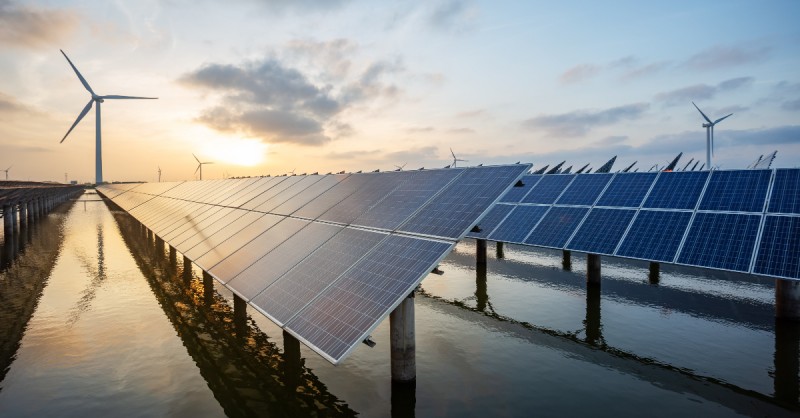Published:June16,2022
The African renewable energy sector is booming and Chinese companies can benefit from that.

Africa Turns To China For Renewable Energy Investments
With Africa attracting only 2% of the global renewable energy investments, the continent is aspiring to increase its installed capacity but it needs capital, Chinese among others, to reach its sustainable development goals.
This week, Daniel Schroth, Director of the Renewable Energy and Energy Efficiency Department at the African Development Bank (AfDB), told the Chinese state agency Xinhua that the regional bank seeks to strengthen its partnership with China in the renewable energy sector.
“One has to recognize that China has seen a larger expansion in the magnitude of renewable energy generation capacity in the last couple of years. It is a remarkable achievement and is something that Africa can learn from,” Schroth said.
AfDB has been investing over the past years in renewable energy with more than 86% of its total investments in power generation going to renewable energy projects, Schroth added. “We see that as the enormous opportunity for Africa to leapfrog some of the existing technologies for the continent’s development.”
The self-described pan-African bank seeks, among other things, to provide electricity access to 250 million Africa by 2030 through its desert-to-power electrification flagship program in the Sahel region.
As AfDB sees it, such regional projects lay the ground for an African integrated system of “robust infrastructure” that would allow sharing of green energy for affordable and accessible electricity and low-carbon solutions.
Schroth argued: “The sun might not be shining in one part but not in other parts. The wind might be blowing in one part but not in the other parts. If you integrate them into one system, you can balance the power use.”
An integrated African energy system sounds ideal to solve the continent’s energy crisis and lack of access to electricity in some parts. However political instability and lack of local and foreign capital in the African energy sector are expected to burden the continent’s progress towards a green future or the net-zero goal set for 2050.
Yet it is only fair to note that some African countries have been leading in the green energy solutions including solar, onshore and offshore wind, as well as green hydrogen energies.
Morocco, for instance, is expected to provide the world’s third-cheapest green hydrogen in 2050, just behind Chile and the global green energy leader, China.
Egypt, South Africa, and Kenya have also worked on developing their renewable energy assets, making them Africa’s forerunners for green hydrogen. The lately famous energy solution relies on renewable energy to produce carbon-free hydrogen from water through a process called electrolysis.
The three countries along with Morocco, Namibia, and Mauritania founded last month the Africa Green Hydrogen Alliance to increase green installed capacity and reduce the cost of electrolyzers. This goal is not limited to Africa since it has been taken more and more seriously after the current energy crisis and Europe’s plans to cut energy reliance on Russia.
An African-Chinese alliance, in such a context, provides what China considers a win-win situation for both parties — with the Asian economic giant providing the know-how and capital to produce different green energy solutions and Africa providing a growing market for renewable energy investments.
African countries, notably, are racing for renewable energy solutions at different scales. Still, the investment opportunities in the continent are promising.
For instance, Africa’s average annual investments in renewable energy grew tenfold over the past two decades to settle at $5 billion in 2010-2020 up from less than $ 500 million in the 2000-2009 period, according to the International Renewable Energy Agency.
Additionally, Central and Southern African countries have prominent abundant mineral resources such as nickel and cobalt that are essential for the production of electric batteries, wind turbines, and other low-carbon technologies.
With African countries aspiring to develop their renewable energy assets, the continent is providing investment opportunities for the benefit of mostly foreign capital and consultancy.
moroccoworldnews.com
 Africa -China Review Africa -China Cooperation and Transformation
Africa -China Review Africa -China Cooperation and Transformation
